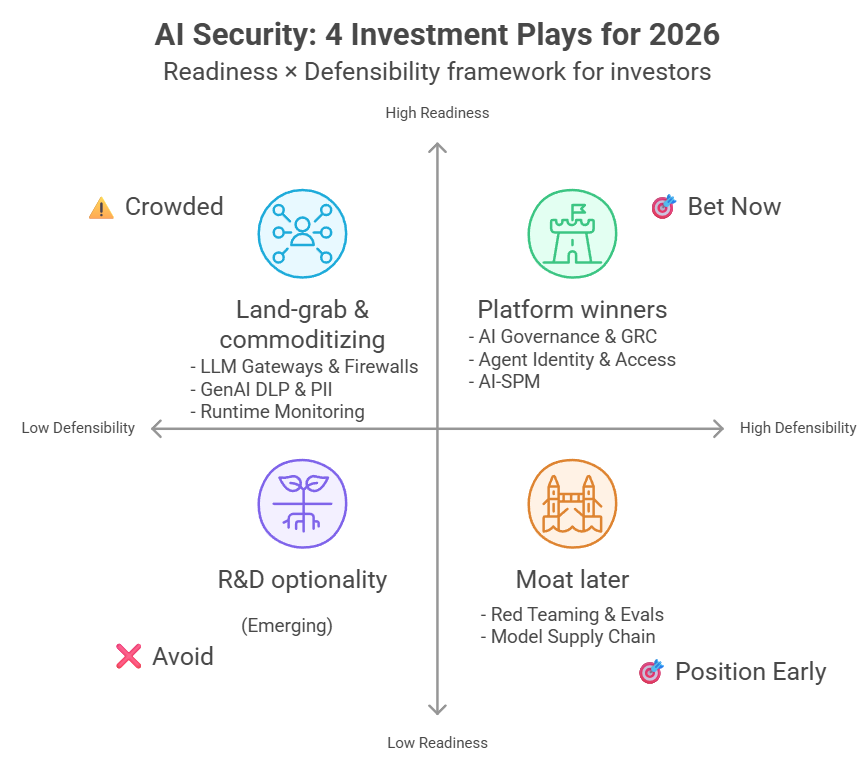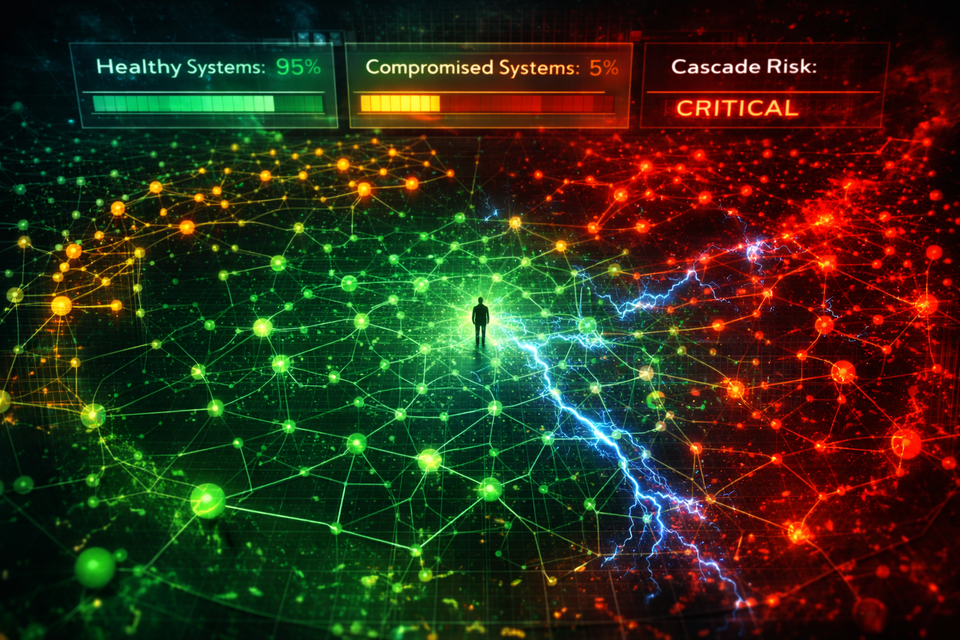AI and the Future of Work: Why BBA Students Should Embrace, Not Fear, the AI Revolution

This essay was intentionally generated by Claude Sonnet 4. The point isn’t to pass it off as mine, but to show why humans still matter in an age of AI automation. It wasn’t a one-minute shortcut. A vague prompt would have produced a bland essay; an over-engineered one, something robotic. The real craft lies in prompting well, and in the human judgment behind it.
Introduction
The phrase “AI automation” has become ubiquitous in discussions about the future of work, often accompanied by alarming headlines about mass job displacement and the obsolescence of human workers. For Bachelor of Business Administration (BBA) students entering a rapidly evolving job market, these narratives can be particularly unsettling. The specter of artificial intelligence replacing human workers across industries—from marketing and finance to operations and human resources—has created anxiety about career prospects and the value of traditional business education.
However, this doom-and-gloom perspective represents only a partial view of a much more complex reality. While AI is indeed transforming the workplace at an unprecedented pace, the narrative of wholesale human replacement oversimplifies the intricate relationship between artificial intelligence and human workers. The reality is far more nuanced: AI adoption in businesses requires not fewer humans, but more skilled humans capable of working symbiotically with intelligent systems.
This essay examines the true impact of AI on business careers, particularly for BBA graduates, and argues that rather than threatening employment opportunities, AI presents an unprecedented chance for business professionals to enhance their value, expand their capabilities, and secure more meaningful, strategic roles in the evolving economy.
The AI Displacement Myth: Separating Fear from Facts
Current State of AI Adoption in Business
Recent research provides a clearer picture of AI’s actual impact on employment. According to the comprehensive “Future of Work with AI Agents” study (2025), while around 80% of U.S. workers may see AI affect at least 10% of their tasks, the relationship between AI capability and human displacement is far from straightforward. The study reveals that 46.1% of workers actually express positive attitudes toward AI automation, primarily because it frees them from repetitive, low-value tasks.
The World Economic Forum’s 2025 Future of Jobs Report indicates that while 40% of employers expect to reduce their workforce where AI can automate tasks, this reduction primarily affects routine, repetitive functions rather than strategic business roles. More significantly, technology trends in AI are projected to create 11 million jobs while displacing 9 million others—a net positive of 2 million positions.
The Complexity of Business Functions
Business roles, particularly those that BBA graduates typically pursue, involve complex, multifaceted responsibilities that extend far beyond simple task execution. Consider the role of a marketing manager: while AI can generate content, analyze data, and optimize campaigns, it cannot understand cultural nuances, build authentic relationships with stakeholders, or make ethical decisions about brand positioning. Similarly, a financial analyst’s value lies not just in number-crunching—which AI can indeed perform—but in interpreting results within business context, communicating insights to diverse audiences, and making strategic recommendations based on both quantitative data and qualitative judgment.
The Human-in-the-Loop research framework demonstrates that most business tasks require human agency levels of H3 (equal partnership) or higher, where human judgment, creativity, and interpersonal skills remain essential. This finding directly contradicts the simplistic “AI replacement” narrative and instead points toward a collaborative future.
The Skills Evolution: From Automation to Augmentation
The Upskilling Imperative
Rather than eliminating the need for human workers, AI adoption creates demand for more sophisticated skill sets. PwC’s 2024 AI Jobs Barometer reveals a significant wage premium—up from 25% the previous year—for workers with AI skills compared to those without, even within the same job categories. This premium reflects the increased value that businesses place on professionals who can effectively collaborate with AI systems.
For BBA students, this represents a fundamental shift in the required competency framework. Traditional business skills—analytical thinking, communication, project management—remain crucial but must be enhanced with AI literacy, prompt engineering capabilities, and human-AI collaboration expertise. The most successful business professionals will be those who can seamlessly integrate AI tools into their workflows while providing uniquely human value through creativity, emotional intelligence, and strategic thinking.
Emerging Business Roles
AI adoption is creating entirely new categories of business roles that didn’t exist five years ago. These include:
- AI Implementation Specialists who bridge the gap between technical AI capabilities and business requirements
- Human-AI Collaboration Managers who optimize workflows involving both human workers and AI systems
- AI Ethics and Governance Officers who ensure responsible AI deployment in business contexts
- Data Storytellers who translate AI-generated insights into compelling business narratives
- Customer Experience AI Architects who design AI-enhanced customer journeys while maintaining human touch points
Each of these roles requires the broad business foundation that BBA programs provide, combined with specialized AI-related competencies.
Industry-Specific Transformations
Different business sectors are experiencing AI integration in unique ways that create new opportunities for skilled professionals:
Financial Services: While AI can automate basic analysis and reporting, the sector increasingly needs professionals who can validate AI models, communicate complex risk assessments to stakeholders, and design AI-human decision-making frameworks. Goldman Sachs and Morgan Stanley, despite testing AI tools for junior analyst functions, are simultaneously investing heavily in hiring professionals who can manage these AI systems and interpret their outputs for strategic decision-making.
Marketing and Communications: The marketing industry, with its global AI market projected to reach $47.32 billion by 2025, exemplifies the augmentation rather than replacement trend. AI handles content generation and data analysis, but businesses desperately need marketing professionals who can maintain brand authenticity, understand cultural contexts, and create strategies that AI recommendations serve rather than drive.
Operations and Supply Chain: AI optimization of logistics and operations creates demand for professionals who can design and oversee these systems, interpret their recommendations within broader business strategies, and manage the human elements that remain crucial for stakeholder relationships and crisis management.
The Strategic Advantage of Human-AI Collaboration
Complementary Capabilities
The most effective business applications of AI leverage the complementary nature of human and artificial intelligence rather than seeking direct replacement. AI excels at processing vast amounts of data, identifying patterns, and performing consistent analysis at scale. Humans excel at contextual understanding, creative problem-solving, ethical reasoning, and relationship building.
Successful businesses are discovering that the combination of these capabilities creates value that neither humans nor AI can achieve independently. The WORKBank database research shows that tasks requiring high human agency—those involving interpersonal communication, domain expertise, and complex decision-making—often benefit most from AI augmentation rather than automation.
The Trust and Oversight Factor
As businesses increasingly rely on AI systems for critical decisions, the need for skilled human oversight becomes paramount. AI systems, while powerful, can exhibit biases, make errors in novel situations, and lack the contextual understanding necessary for nuanced business decisions. This reality creates significant opportunities for BBA graduates who can serve as interpreters, validators, and strategic directors of AI-driven business processes.
Research from the field of AI safety and governance emphasizes that businesses adopting AI responsibly require professionals who understand both business strategy and AI capabilities. These roles involve ensuring AI decisions align with business values, regulatory requirements, and stakeholder expectations—competencies that require broad business education combined with AI literacy.
Preparing for the AI-Augmented Business Landscape
Educational Adaptations for BBA Students
Business schools and BBA programs are rapidly adapting their curricula to prepare students for the AI-augmented workplace. This adaptation involves both technical components—understanding AI capabilities, limitations, and applications—and enhanced focus on distinctly human skills that become more valuable in an AI-rich environment.
Critical areas of focus include:
AI Literacy: Understanding how AI systems work, their capabilities and limitations, and how to effectively collaborate with AI tools across business functions.
Data Interpretation: Moving beyond basic data analysis to sophisticated interpretation of AI-generated insights and their business implications.
Ethical Decision-Making: Developing frameworks for making responsible decisions about AI implementation and ensuring AI systems align with business values and societal expectations.
Creative Problem-Solving: Enhancing capabilities in areas where human creativity provides unique value that AI cannot replicate.
Cross-Functional Collaboration: Learning to work effectively in teams that include both human colleagues and AI systems.
Practical Skill Development
BBA students can begin preparing for AI-augmented careers immediately through practical skill development:
Tool Proficiency: Gaining hands-on experience with AI-powered business tools in areas like customer relationship management, financial modeling, market research, and project management.
Prompt Engineering: Developing the ability to effectively communicate with AI systems to achieve desired business outcomes.
Change Management: Understanding how to lead organizational transformations that involve AI adoption, including managing human adaptation and resistance.
Systems Thinking: Learning to design and optimize business processes that effectively integrate human capabilities with AI tools.
Building a Future-Ready Mindset
Perhaps most importantly, BBA students need to develop a mindset that views AI as a powerful tool for enhancing human capabilities rather than a threat to human relevance. This perspective shift is crucial for career success in an AI-integrated business environment.
This mindset involves:
- Continuous Learning: Embracing the need for ongoing skill development as AI capabilities evolve
- Collaborative Thinking: Approaching problems with consideration for how human and AI capabilities can be combined for optimal outcomes
- Strategic Focus: Moving beyond task-level thinking to focus on strategic, creative, and relationship-building activities where humans provide unique value
- Ethical Leadership: Taking responsibility for ensuring AI is used in ways that benefit all stakeholders
Industry Evidence: The Reality of AI Integration
Financial Services Transformation
The financial services sector provides compelling evidence for the augmentation rather than replacement thesis. While headlines focus on AI potentially replacing entry-level analysts, the reality is more nuanced. Financial institutions are indeed using AI for data processing and basic analysis, but they’re simultaneously creating new roles for professionals who can validate AI outputs, communicate complex findings to stakeholders, and make strategic decisions based on AI insights.
Deloitte’s research on AI in finance emphasizes that “generative AI specifically will allow for further automation of financial analysis and reporting, enhancement of risk mitigation efforts, and optimization of financial operations,” but notes that these improvements require sophisticated human oversight and strategic direction.
Marketing Industry Evolution
The marketing industry’s experience with AI demonstrates how technology can enhance rather than diminish the need for skilled professionals. While AI can generate content and analyze customer data, businesses report increased demand for marketing professionals who can maintain brand authenticity, understand cultural contexts, and create integrated strategies that leverage AI capabilities while preserving human connection with customers.
Harvard Business School’s research on AI in marketing emphasizes that “AI is an opportunity to offer more customized and relevant marketing to customers and ultimately drive businesses forward,” but requires human professionals who can “harness generative AI, hyper-personalization, and predictive analytics to optimize customer engagement.”
Operations and Management
Across various business functions, AI adoption is creating demand for professionals who can bridge the gap between technical capabilities and business strategy. This includes roles in operations management, human resources, business development, and strategic planning—all areas where BBA graduates traditionally find employment.
The key insight from industry research is that businesses adopting AI successfully are those that invest in human capital capable of maximizing AI’s potential while maintaining the strategic thinking, relationship building, and ethical decision-making that remain uniquely human.
Future Opportunities: The Expanding Landscape
New Business Models
AI is enabling entirely new business models that create unprecedented opportunities for business professionals. These include:
AI-as-a-Service Businesses: Companies that provide AI capabilities to other businesses need professionals who understand both AI technology and business strategy to design and market these services effectively.
Human-AI Collaboration Platforms: Businesses that create tools and platforms for effective human-AI collaboration need professionals who understand workflow optimization, user experience, and business process design.
AI Ethics and Governance Consulting: As businesses grapple with responsible AI implementation, consulting opportunities are expanding for professionals who can guide ethical AI adoption.
Data-Driven Business Transformation: Companies undergoing AI-driven transformation need change management experts who understand both business strategy and AI capabilities.
Entrepreneurial Opportunities
BBA graduates with AI literacy are well-positioned to identify and pursue entrepreneurial opportunities that emerge from AI adoption. These might include developing AI-enhanced business solutions, creating new service offerings that combine human expertise with AI capabilities, or starting businesses that address the challenges and opportunities created by AI integration.
The combination of business education and AI understanding creates a unique position for identifying market gaps and developing innovative solutions that serve the evolving needs of AI-adopting businesses.
Global Market Expansion
AI is democratizing access to sophisticated business capabilities, enabling smaller businesses and startups to compete with larger enterprises. This expansion creates opportunities for business professionals who can help organizations of all sizes effectively adopt and leverage AI technologies.
International business opportunities are also expanding as AI enables more efficient global operations and creates demand for professionals who can navigate the complexities of AI adoption across different cultural and regulatory environments.
Conclusion: Embracing the AI-Augmented Future
The narrative that AI will wholesale replace human workers in business roles is not only inaccurate but potentially harmful in diverting attention from the real opportunity at hand. For BBA students, the AI revolution represents not a threat to career prospects but an unprecedented opportunity to enhance their value, expand their capabilities, and secure more meaningful roles in the evolving economy.
The evidence overwhelmingly demonstrates that businesses adopting AI need more skilled human workers, not fewer. These workers must be capable of collaborating effectively with AI systems, interpreting AI outputs within business contexts, and providing the strategic thinking, creative problem-solving, and relationship building that remain uniquely human.
BBA students who embrace this reality and prepare accordingly will find themselves at a significant advantage in the job market. Those who develop AI literacy alongside traditional business skills, who understand how to effectively collaborate with AI systems, and who can bridge the gap between technical capabilities and business strategy will be the most sought-after professionals in the AI-augmented economy.
The future belongs not to AI systems replacing humans, but to humans and AI working together to achieve outcomes that neither could accomplish alone. For BBA students willing to adapt and grow, this future is bright with opportunity. The key is to view AI not as a competitor for human jobs, but as a powerful tool that amplifies human capabilities and creates new possibilities for business value creation.
Rather than fearing the AI revolution, BBA students should position themselves at its forefront, ready to lead the transformation of business in the age of artificial intelligence. The organizations that thrive in this new landscape will be those led by professionals who understand both the power of AI and the irreplaceable value of human insight, creativity, and judgment. This is the opportunity—and the responsibility—that awaits the next generation of business leaders.
The question is not whether AI will change the business landscape—it already has. The question is whether BBA students will be passive observers of this change or active architects of the AI-augmented future. The choice, and the opportunity, is theirs to make.
Written by Claude Sonnet 4




